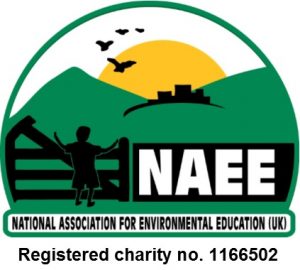 Learning Away has a new CPD training programme to help put together brilliant residentials which is going live in September. This has been developed with teachers and the modules draw on the real-life experiences and learnings from schools. The programme has two strands, one for the school leadership team and one for teachers. The programme aims to help develop a whole-school understanding of the unique nature and value of residentials and ensure you, your students and the school get the most from the experience. The CPD sessions can be undertaken through face-to-face training or via our on-line learning platform. You can register your interest here.
Learning Away has a new CPD training programme to help put together brilliant residentials which is going live in September. This has been developed with teachers and the modules draw on the real-life experiences and learnings from schools. The programme has two strands, one for the school leadership team and one for teachers. The programme aims to help develop a whole-school understanding of the unique nature and value of residentials and ensure you, your students and the school get the most from the experience. The CPD sessions can be undertaken through face-to-face training or via our on-line learning platform. You can register your interest here.
NAAEE is hosting a webinar on Tuesday on New Thinking in Sustainability and EE in which Marc Stern and Bill Scott are introducing their respective books. It starts at 2000 and will last for an hour. More detail and joining instructions here.
Eco-teams from Medlock, Ravensbury and Claremont primary schools in Manchester have been learning about impoverished and contaminated soils as part of the Save our Soils project run by MEEN (the Manchester Environmental Education Network) and Debdale Eco Centre. The pupils have learned about composting and soil types and have found out why their school’s soil is in trouble. Two key issues were identified:
1) The problem of contaminated land which prevents schools from eating produce they grow directly in the ground due to soil contamination;
2) The problem that many inner city school grounds only have a very thin layer of top soil which has been added to cover up hard core making it difficult to grow anything other than grass in the ground.
Pupils also took action to improve their soils by planting birch trees or adding compost and soil to areas of their grounds. They shared their learning with a range of growers, academics, NGOs and others with an interest and expertise in soils at the intergenerational Save Our Soils conference on July 6th.
The David Shepherd Wildlife Foundation says that if you’re young, arty and concerned about conservation, why not enter this year’s Global Canvas contest? Your colourful creation could end up on display at the London Natural History Museum. The annual Global Canvas Children’s Art Competition was set up in 2004 by to encourage young people to express their concern for wildlife and the environment through art. This year’s theme is Habitats of the World and group entries are invited from children aged 16 years and under. Entrants can use creative media including art, sculpture, textiles, collage etc. to present a mini-exhibition reflecting the competition topic.
For full details on how to enter, click here.
Circle of Life Rediscovery has published its autumn programme of events. These include:
- Outdoor Maths – Place Value, Nature Counts
- Level 2 Award in Food Safety, with Outdoor Cooking
- Working with Young People with Challenging Behaviour, in the Outdoors
BEIS has announced a 30% emissions reduction pledge for greenhouse gas emissions by 2020/21 for public and higher education sectors in England. This will require organisations that volunteer to sign up to a common set of principles, under the Emissions Reduction Pledge 2020 banner. Every organisation that wishes to become involved will be required to:
- develop and implement the business case for measuring and reducing energy use, costs and carbon emissions in their organisation
- implement the Emissions Reduction Pledge 2020, using regular measurement to inform management action
- report its annual energy use to BEIS through existing reporting mechanisms where possible (as outlined later in this document)
- share best practice in their local area and within the sectors.
This offer is open to schools, FE and HE, but not NGOs. For details click here.
The Every Child Should newsletter is part of a new campaign to ensure all children can access a rich and rounded set of experiences by the time they are 18.
Project Dirt has published details of a number of forthcoming events. Dirt adds: Communities can be a powerful force for change but they need support! That’s the message from the recently-published Future for Communities report.
Environmental Education Research Bulletin 11 has been published. This is a collaborative project of ChangeScale, NAAEE (ee360) and Stanford University. These Bulletins synthesize and summarize research from journals on issues pertaining to environmental educators. The bulletins include articles related to environmental education evaluation, sense of place, environmental behavior, teaching practices, and professional development, among other relevant topics. You can read more here.
Theres a Future Forward Summit on Sustainable Higher Education in Belgium from 17th to 19th October. This aims to bring together people from all over the world who are connected to higher education and who are a part of making a positive change for sustainability. The organisers say:
“Futureproof your project design with the help of like-minded colleagues and the input of experts from unexpected backgrounds.”
There’s more info here.
